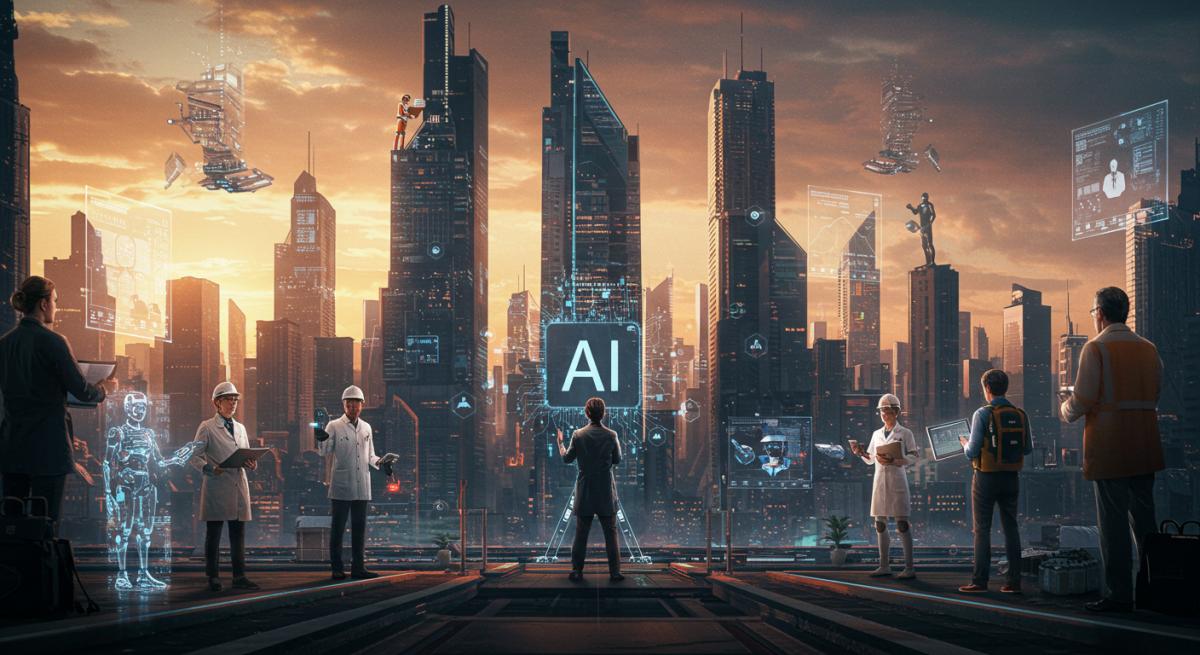AI is changing the job landscape, and it’s good to know where it’s making waves. Some positions are feeling the impact more than others. Jobs that involve repetitive tasks or routine processing are especially at risk. This isn’t just a trend; it’s a shift that’s happening right now.
Think about roles like data entry, basic customer service, and even some aspects of content creation. These jobs often rely on predictable patterns and can be done quickly by algorithms. AI can churn through data much faster than any human, making those roles less necessary. If you’re in one of these fields, consider looking for skills that encourage creativity or problem-solving, things AI still struggles with.
Another area to watch is manufacturing. AI and robotics are taking over tasks on assembly lines, making production faster and more efficient. Jobs that can be done by machines will likely fade away. Workers in these industries should focus on learning skills that involve managing tech, as understanding how to work alongside AI can give you an edge.
Healthcare is also changing. While AI won’t replace doctors, it’s taking over administrative roles. Systems that schedule appointments, process insurance claims, and even assist in diagnostics are here. If you work in healthcare, becoming tech-savvy can keep you relevant. Learning how to use new tools that enhance patient care is key.
Staying ahead means adapting. Focus on skills that AI can’t easily replicate. Building emotional intelligence, honing creative skills, and improving your technical knowledge will prepare you for future opportunities. Embrace the change and explore new roles that will thrive alongside AI innovation.
Top Skills for the Future Job Market
As we step into a future where AI is shaking up the job market, it’s clear that some skills are going to be game-changers. Companies will always need people who can adapt and evolve. Here are some top skills to focus on.
1. Tech Savvy: Understanding technology is crucial. You don’t have to be a coding genius, but being comfortable with digital tools and platforms goes a long way. Familiarity with AI and data analysis will give you a serious edge. If you can use the tools to make smarter decisions, companies will want you on their team.
2. Creative Problem Solving: AI handles repetitive tasks, but it struggles with creativity. Being able to think outside the box and come up with unique solutions is a huge plus. Whether it’s brainstorming new ideas or navigating challenges, creativity will set you apart.
3. Emotional Intelligence: People skills matter more than ever. Being able to connect with others, understand their feelings, and work well in a team is vital. AI might crunch numbers, but it can't replace human empathy. Strong communicators and team players will always be in demand.
4. Lifelong Learning: The only constant is change. Embracing a mindset of continuous learning is key. Online courses, workshops, or even just staying curious can help you keep up with the latest trends and tools. The more you learn, the more valuable you become.
How to Upskill for New Opportunities
Upskilling is all about adding new tools to your toolkit. With the world changing fast, especially with AI, it’s key to stay ahead. You want to make sure your skills are fresh and ready for what’s coming. So, how do you do that? Let’s dive into some practical ways to make it happen.
First off, online courses are a game-changer. Platforms like Coursera, Udemy, and LinkedIn Learning have tons of options. Whether you’re into coding, digital marketing, or data analysis, there’s something for everyone. Pick a subject that interests you or aligns with your career goals. And hey, don’t feel pressured to rush. Learning at your own pace works wonders.
Next up, consider joining a community or professional group. Engaging with others in your field can spark new ideas and push you to learn. Plus, networking can open doors to opportunities you might not have thought of. Look for local meetups, webinars, or even online forums where you can connect with like-minded folks.
Don’t forget to practice what you learn. It’s one thing to take a course, but applying those skills is where the magic happens. Take on side projects, volunteer for new tasks at work, or even start a blog to share your journey. Real-world experience will boost your confidence and make those new skills stick.
Lastly, keeping an eye on industry trends can give you a leg up. Follow thought leaders on social media, listen to podcasts, or read blogs about upcoming tech and skills. Knowing what’s on the horizon can help you steer your learning in the right direction. Seize those opportunities, and stay ready for whatever comes your way!
Embracing Change in the Workforce
Change is everywhere, especially in the workforce. With AI rapidly advancing, many jobs are getting a makeover. Some roles are changing, while others might disappear completely. It can be a bit overwhelming to think about how these changes will affect us.
But here’s the good news: adapting to these shifts can open up new opportunities. Embracing technology can lead to exciting roles that didn’t exist a few years ago. If you keep your skills fresh and stay curious, you’ll find ways to thrive in this new landscape.
Consider upskilling. Think about taking online courses or attending workshops to learn about AI tools that can help you in your current job or open doors to new ones. Just a few hours of effort can make a huge difference. Plus, getting hands-on experience with AI not only boosts your resume but also gives you a better understanding of its potential.
Networking plays a big role, too. Connect with people in tech-driven industries. They can share insights and tips on how to navigate this shifting landscape. Don’t hesitate to reach out and ask questions. Many folks are eager to help, especially if they see you’re actively trying to adapt.



